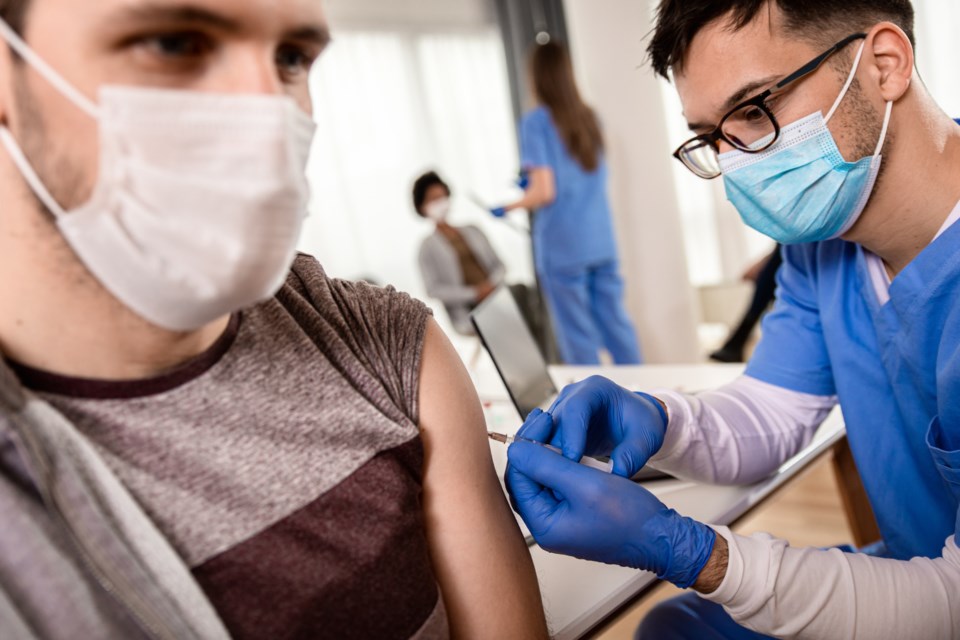The region’s COVID vaccine clinics have seen a spike in people coming to get their first dose of immunization, according to the medical officer of health.
Dr. Charles Gardner, the top doctor for Simcoe Muskoka District Health Unit, said just under 50 per cent of those who recently attended clinics were there to get their first dose. That’s up from about 25 per cent last month.
In June 2021, the health unit clinics were administering up to 10,000 vaccines per day. From Aug. 12 on, the health unit reports between 500 and 2,700 vaccines administered per day.
The latest increase in first-dose appointments started around the same time Ontario Premier Doug Ford announced a vaccine passport system for the province. Starting Sept. 22 people will have to show proof they received two doses of a COVID-19 vaccine more than 14 days before attending an indoor non-essential setting such as a restaurant, gym, sporting event and a theatre.
Children born after 2009 would be exempt from the passport requirements since they are not eligible.
About 17 per cent of the population of Simcoe-Muskoka eligible for a vaccine (aged 12 or older) is still unvaccinated.
“From here it’s a long road,” Gardner said during a media briefing this week. “The vaccine mandates, requirements for vaccine policies… are really important. And certainly continuing to make it easy for people to get immunized is important.”
The health unit has closed down all but one of its community-based mass immunization clinics. It is still operating its clinic at 29 Sperling Dr., in Barrie, which was the first COVID-19 vaccine centre in the region.
Delivery of vaccines is now being done through pop-up clinics, mobile services, pharmacies, primary care providers, and school-based clinics.
“From this point on, it’s just not going to be the same pace of coverage as what we were able to achieve with the first three-quarters of the population,” said Gardner.
At the current pace, Gardner estimated about 81 per cent of the eligible population in the region will be fully vaccinated by early October.
People living in long-term care facilities in Simcoe-Muskoka who would like a third dose will have one by Sept. 17.
While the vaccines don’t absolutely prevent an individual from getting COVID, they do reduce the risk of transmission, and greatly reduce the instance of hospitalization, severe illness and death.
According to Public Health Ontario, unvaccinated people are eight times more likely to catch COVID.
Between 12 and 15 per cent of the region’s cases are in fully-vaccinated people.
Gardner said it’s important everyone – regardless of their vaccination status – keep up public health measures such as mask-wearing indoors, physical distancing, reducing close contact, avoiding large crowds, and frequent hand washing.
According to the Ontario COVID-19 Science Advisory Table, the province needs close to 90 per cent of the population to be fully vaccinated to achieve herd immunity against COVID-19. However, not enough people are eligible for the vaccine in the province to achieve that coverage rate.
There are about 604,512 people living in Simcoe-Muskoka region (based on StatsCan information), and the health unit states 531,241 of them are 12 and above. To achieve a 90 per cent vaccination coverage rate, 544,060 people would have to be fully vaccinated. Currently, 402,459 people in the region are fully vaccinated, and another 37,252 people have had one dose of a vaccine against COVID-19.
